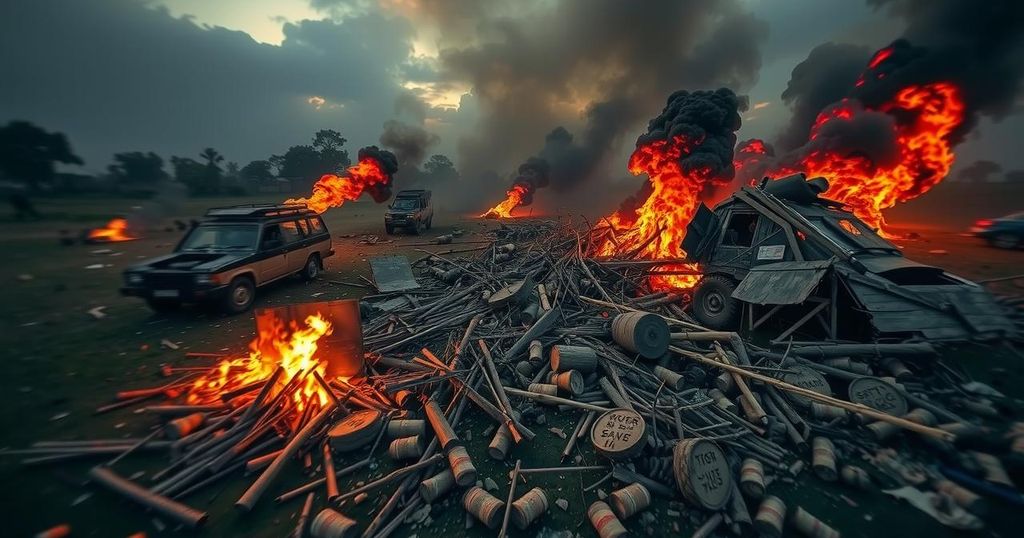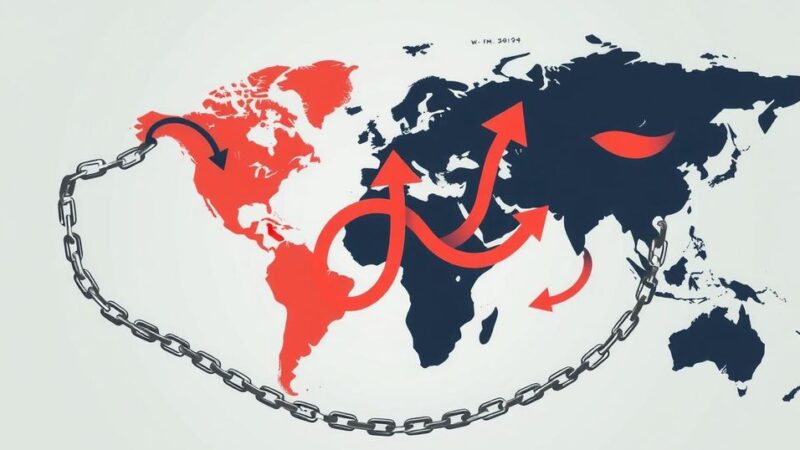Sudan is in the throes of intensified warfare, resulting in hundreds of civilian deaths due to aerial bombings and retaliatory violence. The conflict has seen shifts in territorial control and reports of atrocities by retreating fighters. Calls are growing for United Nations intervention to protect civilians amidst widespread suffering and disease outbreaks, as more than 10 million people are displaced.
In recent days, Sudan has witnessed a dramatic escalation in armed conflict, predominantly affecting civilians who have faced immense suffering due to the violence. Reports indicate that hundreds have been killed as a result of aerial bombings and retaliatory attacks amidst renewed fighting, following the conclusion of seasonal rains. In light of these circumstances, calls for the United Nations to intervene with a protective mission for civilians have intensified. The conflict has brought about significant changes in territorial control, including the defection of a high-ranking military commander and various reported atrocities by retreating fighters, which encompass sexual assault, kidnapping, and murder of villagers in contested regions. Moreover, the involvement of foreign contractors is becoming more evident, as a military cargo plane reportedly crashed in Darfur, allegedly carrying Russian crew members. After losing substantial territory to the Rapid Support Forces (R.S.F.), the Sudanese military has regained some strategic advantages, although both factions continue to face numerous war crimes allegations. Despite both sides being implicated, the R.S.F. has specifically faced claims of ethnic cleansing. Kholood Khair, founding director of Confluence Advisory, highlighted, “The fighting season has just restarted, and both sides want to jostle for an early advantage.” The ongoing violence coincides with a dire humanitarian situation, where more than 10 million individuals have been displaced, and diseases such as cholera and dengue fever are proliferating rapidly throughout the region.
The ongoing conflict in Sudan has evolved into one of the most severe humanitarian crises in Africa. Following a power struggle between the Sudanese military and the Rapid Support Forces, violence has surged, resulting in widespread displacement and extensive civilian casualties. The conflict’s complexities are exacerbated by external influences, including foreign military contractors and geopolitical interests in the region, leading to accusations of war crimes and violations of human rights.
The unfolding crisis in Sudan is marked by unprecedented violence that has resulted in significant civilian casualties and widespread humanitarian distress. The renewed intensity of the fighting, coupled with reported atrocities and external interventions, underscores the urgent need for international oversight and humanitarian assistance. As the situation evolves, the implications for regional stability and civilian safety remain gravely concerning.
Original Source: www.nytimes.com







